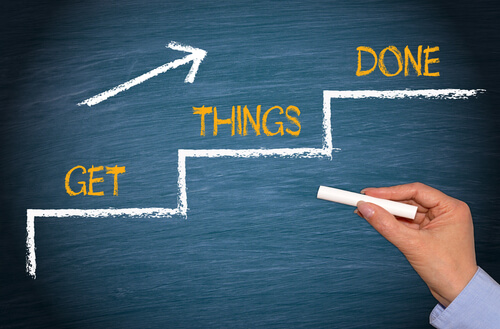
Since the COVID-19 pandemic struck the world, a lot changed. Everything from the way we communicate, socialize, do business etc. altered. Worldwide lockdowns are causing many employees to work from home. A significant advantage of working from home is the time you save on commute. However, managing spare time is challenging too as people are not able to optimize the extra time and end up procrastinating. We need to work together to ensure that the economic damage brought about by the lockdowns is minimal. And we can make this happen when everybody contributes to the task without procrastinating.
How does one stop procrastinating?
Among the many solutions that management experts offer to this problem, we have picked the ‘Getting Things Done’ or commonly known as GTD method conceptualized by the David Allen Company to help you tackle this problem.
This methodology will help you perform better while maintaining your calm.
Why do we procrastinate?
According to David Allen, the founder of the Getting Things Done method, we procrastinate because we fear losing control of a situation.
E.g. If you have to do a presentation of a sales report, you will postpone doing it endlessly for fear of not being able to put out your best work. If you don’t do your best, then you increase your chances of failure – thus resulting in you losing control over the situation.
So what is the solution?
1.Break your main job into tiny tasks
The solution is to not look at the job as a mountain of a task but to break it down into small tasks that lead to completing the main task. E.g. If you have to present a sales report, write down all the steps you need to do in a chronological order to complete the task. One of the steps would be to gather all the sales data. Begin with that one task and stick to it till you’re finished. Simply collecting data is easier than approaching the whole task at once.
2.Don’t multi-task
Another important tip he offers is to not multi-task. When we multi-task our focus shifts from one job to another. So we’re not able to give focused attention to either of the tasks and end up doing neither efficiently. Hence it is advisable to do only one task at time.
3.Do result-oriented tasks
Beware of being busy the whole day. If you’re busy with a task first ask yourself the result that you’re trying to achieve by finishing the task. If you set a goal against a task you will have a clear purpose for doing it. Consequently, the chances of you completing the task increase when there’s a clear purpose behind an action.
To get an in-depth understanding of this method, watch this video:
![]()


Comments